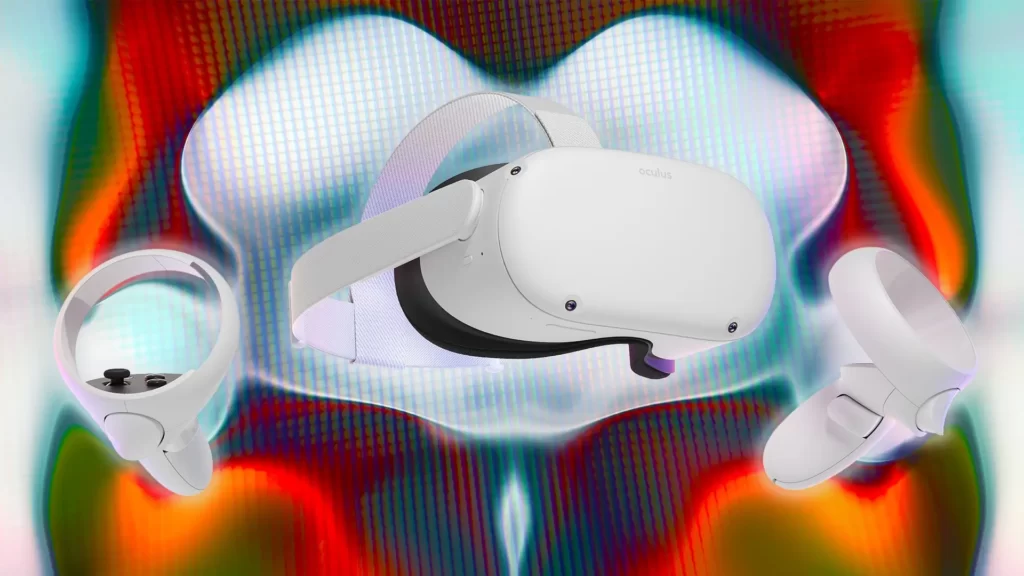As Virtual Reality (VR) becomes more popular, many parents wonder if it’s safe or appropriate for their young kids, especially 5-year-olds, to use devices like the Meta Quest 2. This question often sparks debates about age restrictions, health concerns, and the suitability of VR for children.
Meta, the company behind the Quest 2, has set clear age guidelines. However, real-world stories from parents and research studies paint a more nuanced picture. Is it ever okay to let a 5-year-old step into the world of VR? And if so, what precautions should you take?
Here’s what we’ll explore in this post:
- Meta’s official stance on age restrictions for the Meta Quest 2
- Potential risks of letting young children use VR
- Tips and expert advice for parents considering VR for their little ones
We’ll help you understand the facts, the risks, and the options so you can make the best decision for your family.
What Does Meta Say About Age Restrictions?

Meta, the makers of the Meta Quest 2, has made it clear: The headset is not designed for children under the age of 10.
Here’s what Meta officially says about age restrictions and why they matter:
- Minimum age is 10 years: Meta allows children between 10 and 12 years old to use the Quest 2, but only if a parent or guardian creates and manages their account. For children under 10, using the headset is not recommended.
- Parental controls are required: For children aged 10-12, Meta offers parent-managed accounts. Parents can monitor usage, set time limits, and control which apps and features are accessible.
- No accounts for kids under 10: Meta does not provide account options for children below 10, meaning younger users cannot create or use accounts on the Quest 2.
Why Does Meta Discourage VR Use for Kids Under 10?
Meta’s guidelines exist for good reasons. The company explains that the Meta Quest 2 isn’t designed for smaller heads, weaker necks, or developing eyes.
They also stress that children under 10 may struggle to understand the difference between virtual content and reality, which could affect their overall experience and safety.
Read this: 8 Kids Meta Quest 2 Accessories To Make Kids’ Life Easy
Meta’s safety policies also highlight potential risks:
- Younger kids might experience discomfort, like neck strain or blurry vision, due to the headset’s size and weight.
- The immersive nature of VR could lead to emotional reactions that children might find hard to process.
- Kids under 10 are less likely to follow safety instructions, increasing the chances of accidents during VR play.
Expert insights
Studies have shown that VR can temporarily alter a child’s perception of coordination and space. For example, researchers found that immersive VR might reweight how kids process sensory inputs like vision and balance.
While occasional use may not have lasting effects, it’s a topic still under research.
Understanding these risks is essential, but it doesn’t mean VR is entirely off-limits for young kids. Let’s see what parental controls and tools Meta offers to help create a safer experience.
Parental Controls and Limitations
Meta provides parental controls for the Meta Quest 2 to help parents monitor and guide their child’s VR experience. However, these controls have some limitations, especially for younger children under 10 years old. Here’s what you need to know:
What parental controls does Meta offer?
- Parent-managed accounts: Meta allows parents to create and manage accounts for kids aged 10-12. These accounts let parents monitor their child’s activity and set boundaries.
- App blocking: Parents can block specific apps or games that are not suitable for their child’s age or maturity level.
- Time limits: You can set daily screen time limits to ensure your child doesn’t spend too much time in VR. Meta’s default is 2 hours per day.
- Purchase approvals: Parents can require their approval for any in-app purchases, helping to prevent accidental spending.
Why do these limitations matter for young kids?
For a 5-year-old, even limited exposure to inappropriate content or unsupervised interaction could have a strong impact. The lack of tailored features for very young children means parents must take extra precautions if they choose to let their child use VR.
What do experts and experienced parents think about kids using VR? Let’s dive into their opinions and insights.
Expert and Community Opinions on VR for Young Kids
Parents, experts, and the VR community all have different opinions about letting young children, like 5-year-olds, use Virtual Reality. While some believe occasional supervised use is harmless, others recommend waiting until kids are older. Here’s what they’re saying:
What do experts say?
- Scientific studies: Research suggests that VR can temporarily affect a child’s sensory processing, such as their ability to coordinate balance and movement. These changes are not permanent, but they highlight the sensitive nature of young, developing brains.
- Vision and cognition concerns: Experts warn that prolonged VR use could strain children’s eyes or overload their cognitive systems. Since their brains are still developing, moderation and supervision are crucial.
- Developmental recommendations: Many health professionals recommend avoiding VR for children under 10 to minimise any potential risks.
What do parents say?
- Some allow limited use: Parents in online communities often share stories of letting their young kids try VR for short, supervised sessions. They emphasise setting clear boundaries and choosing safe, age-appropriate content.
- Concerns over content and safety: Many parents worry about exposure to unsuitable games, social interactions, or accidental injuries during gameplay.
- Mmixed experiences: While some parents report their kids enjoying VR safely, others note that their children experienced discomfort, such as dizziness or fear, after using the headset.
What does the VR community think?
- age restrictions matter: Many VR enthusiasts on forums like Reddit highlight that Meta’s age guidelines are in place for a reason. They encourage parents to follow these rules to avoid risks.
- Creative use of VR for kids: Some community members suggest using VR for educational or visual experiences rather than gaming, as these activities are less intense and easier to supervise.
- Focus on responsible use: The VR community generally agrees that, if VR is used by young kids, it must involve strict parental oversight and short sessions.
A balanced perspective
While occasional, closely monitored VR use might be okay for a 5-year-old, both experts and experienced parents lean toward caution. The immersive nature of VR means parents must remain vigilant about potential physical, emotional, and developmental effects.
If You Still Want to Let Your 5-Year-Old Try VR…
If you’ve weighed the risks and still want to let your 5-year-old experience VR, it’s essential to take extra precautions to ensure their safety and comfort. Here’s how you can make the experience as safe and enjoyable as possible:
Tips for Safe VR Use for Young Children
- Limit Session Time: Keep VR sessions very short—just a few minutes at a time. This reduces the risk of eye strain, dizziness, or fatigue.
- Always Supervise: Be in the same room while your child uses VR. Use the Oculus app to cast their VR view to your phone so you can monitor their activities.
- Create a Safe Play Area: Set up a large, clutter-free space. Use the Guardian boundary feature to mark the area, and remove anything they could trip over or bump into.
- Choose Age-Appropriate Content: Stick to simple, non-violent VR experiences designed for young children. Avoid games with fast movements or intense visuals.
- Monitor for Discomfort: Watch for signs of discomfort like blurry vision, dizziness, or complaints about neck pain. If your child feels uneasy, stop the session immediately.
Extra Steps to Reduce Risks
- Adjust the Headset Properly: Make sure the headset fits snugly and the text on the screen is clear. If it doesn’t fit well, avoid use altogether.
- Use Hygiene-Friendly Accessories: Keep extra foam covers or silicone faceplates handy, especially if multiple people are using the headset. This helps maintain hygiene and prevents skin irritation.
- Talk About Virtual vs. Real: Explain to your child that VR is a pretend world and not real life. This helps them understand what they’re seeing and reduces potential confusion or fear.
Is It Worth It?
While these precautions can help make VR safer for your child, the risks still exist. Many experts and parents agree that it’s better to wait until your child is older and ready for the full VR experience.
Conclusion
The Meta Quest 2 is not designed for 5-year-olds, and Meta itself strongly advises against its use by children under 10. The potential risks to physical health, emotional well-being, and cognitive development are significant.
However, if you’re set on letting your child try VR, make safety your top priority by following the tips shared above.
Until Then Stay Strong VR Army!


